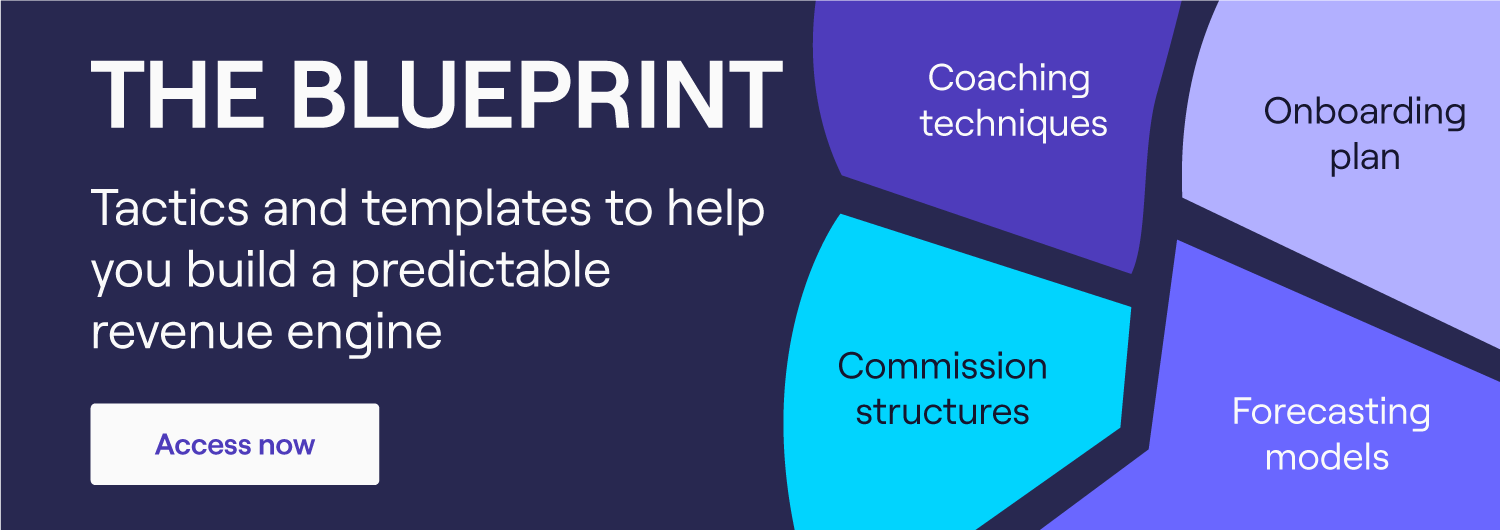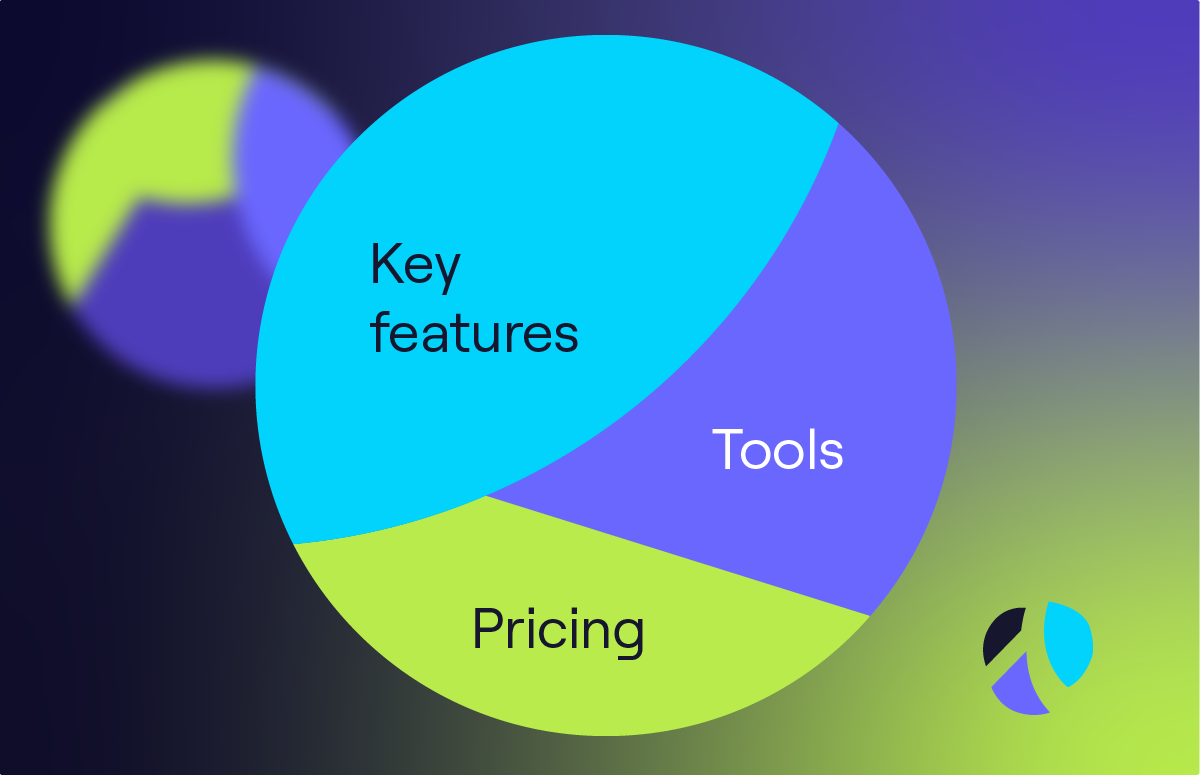How to Hire SDRs: a Sales Leader’s Guide
What's on this page:
Looking to build a high-performing SDR team?
Jon Ilett, VP of Global Sales at Cognism, views the process of hiring SDRs as being like a sales call with a prospect.
He believes it’s essential to break it up, like you would a sales call:
- Discovery
- Case studies
- Expectation setting
- The close
Let’s jump into Jon’s ultimate process for SDR recruiting 👇
1. Discovery
Jon brings the art of sales discovery to an SDR job interview - we asked him more about this.
What motivations do you look for when hiring SDRs?
“I like competition. I want someone to be competitive, but competitive with themself. Top performers usually say they set their own benchmarks and goals. That’s a great indicator for me.”
“Money is another important one. If people are pushing themselves to achieve a goal, like buying a house, it means they’ll have that extra drive when things aren’t going their way. These motivations tend to be more common with people on their second jobs, rather than graduates.”
“It’s important to differentiate between people who just want money, and people who have a money-dependent goal. If they’re just after money, they’re likely to burn out faster.”
“As a sales leader hiring a new team member, it’s good to treat the early part of the interview like the discovery phase of a cold call. You need to find out what’s really driving the candidate.”
“Ask them - what do they want in their role and future career? Are they motivated by training, money, progression or culture?”
“Focusing on this means you’ll quickly find out if the candidate is a good fit for your company or not.”
What attributes do you look for in SDR recruiting?
Jon said:
“Different people have different preferences, but I’m looking for resilience. Often you’ll find this in people who’ve had a bit of a knockback and they’ve had to knuckle down. That makes a big difference.”
“High performance is another thing I’m looking for, and this doesn’t have to be in sales. I know someone called Ben Smith, who was an incredible ice skater. He went on to become Director of Global Business Development at Reachdesk. Excellence in any field usually translates well in sales.”
We asked Ben Smith how his experience as a professional ice skater has helped him in sales:
“Coming from a sporting background has taught me to juggle many plates at once. From balancing school, skating and other activities, you quickly learn how to prioritise and realise what’s most important.”
“I also think my athletic background has given me a good understanding of how I learn. This has given me the skills to persevere and look forward to the wins. This is something we do every day in sales.”
David Bentham, Director of Sales Development at Cognism, spoke at the Sales Innovation Expo. Watch the video for his take on what attributes to look for when recruiting SDRs 🎥
What level of experience are you looking for?
“We’ve recently pivoted. We’re looking mostly at second jobbers now because they’ll already know what a sales job entails. This comes with some extra cost, but you’ll find great people.”
“When we evaluate graduates, we’re looking for high performance, determination, and most importantly, an understanding of the role. If people are after the perks without understanding the hard graft of prospecting, they might not succeed.”
2. Case studies
Jon provides the SDR candidate with real-world data, like on a case study. He then shows them how their targets can be achieved. We asked him how this worked in practice.
How important is it to sell the role?
“It’s massively important. If you’re talking to a good candidate who came through a SaaS sales recruiter for startups, they’re probably talking to 5 or 6 other high-growth companies. You need to sell the potential of the role to them.”
“It’s hard to find high-performing outbound sales reps; the best ones will be carefully evaluating their options. You have to stand out as much as they do.”
How do you show a candidate that your targets are achievable?
“One thing that’s worked for me in the past is setting up calls with potential colleagues; they can talk through the targets and provide the candidate with that proof.”recr
How do you ensure that targets are realistic?
“We use metrics. For our Account Executives, we look at the maximum number of sales demos they can do per week, the average close rate and factor in the average contract value. This then gives them a target based on maths.”
“We then make sure we have enough heads in the team to meet overall revenue target, and this highlights potential opportunities for more positions which we communicate to the team.”
“It’s not a random number plucked out of the air; it’s a careful calculation. If a sales team can see exactly how their targets are decided, they’ll buy into them too.”
3. Expectation setting
Just as on a cold call, when interviewing for a new SDR hire, it’s important to manage the candidate’s expectations - especially around topics such as promotion and progression.
Jon gave us his thoughts about this.
If you don't manage expectations, can you run into problems later?
“If you don’t set expectations around promotions, people might expect to get them within two months, which is unrealistic.”
“My advice would be to set expectations with the candidate during the interview. It can save you a lot of problems later on.”
“This is especially the case at a growing company. If new starters look at the more experienced sales reps in closing roles, they’ll want to emulate their progression and have those expectations if not addressed.”
“But the company is most likely in a different place now to when that rep originally started. That speed of progression might not be possible. It's important to make sure they’re aligned.”
“So what should the interviewer do? Sell the progression plan and timelines to the candidate. Make it clear for them to understand. It’s the hirer’s job to ensure there’s no misalignment here.”
How does this part of the call usually go?
“It usually goes really well! If you can see the ladder and see how other people are progressing, it can be a massive source of encouragement.”
“I try to get our sales managers on the call here to help with this. They can provide examples from their team and paint a realistic picture of the candidate’s expected progression.”
4. The close
The best salespeople know not to end a cold call without handling all of the prospect’s objections. The same is true for sales interviews when hiring SDRs.
Jon explained how he brings that closing mentality to SDR recruiting.
Why handle objections during the call?
“If someone leaves a call with concerns, they’ll amplify over time. They’re going to speak to their friends and draw their own conclusions. It’s like selling; you want to address reservations so people leave the call with 100% clarity.”
“Ask the candidate if they have any reservations before the call ends. Don’t let a high performer leave the call with unaddressed red flags.”
Do you address your own red flags too?
“We do. It actually looks good when candidates ask if we have any reservations about their interview. We try to be open with them, because most of them are on their first or second job, and they really want the feedback.”
“There’s one person in our sales team who we gave some critical feedback to and they didn’t get the role. They came back another time, having worked on those points, and they got the job.”
This person is Sam Gibbons; he's now an Enterprise Account Executive at Cognism. We asked him about his interview process for hiring.
“Though I was frustrated with the outcome of the first interview, the feedback told me exactly what I needed to work on.”
“Polishing off these areas not only helped me land the job with Cognism, it made me a better candidate. This could've helped me apply for other roles.”
Hiring companies owe feedback to their candidates. It’s tough to find sales jobs at the moment, and a bit of advice can go a long way!
Hiring SDRs FAQs
What are the best traits to look for when you hire SDRs?
1. Optimistic
SDRs get relentlessly beaten down, with no after no. The best SDRs are incredibly optimistic individuals.
2. Driven
A striving personality is critical; it helps SDRs stick to their plan.
3. Resilient
Staying cool in the face of rejection and frustrated prospects is vital.
4. Competitive
Sales is a competitive job, and great SDRs thrive in this environment. It pushes them to be better every day.
5. Desire to progress their career in sales
People who see the potential of the role and a long-term career in B2B sales.
6. Excellent communication skills (verbal and written)
Communication is the lifeblood of SDRs - the role is all about building connections.
7. Excellent listening ability
Active listening skills are crucial for uncovering pain points.
8. Empathetic
SDRs need to be able to relate to the prospect’s interests.
9. Curious
Genuine interest in selling techniques and the wider industry is an excellent predictor of success.
10. Organised
Effective time management leads to more time selling!
11. Confident
SDRs who exude confidence make a great first impression on prospects and find it easy to build relationships.
12. Creative
Innovative prospecting helps an SDR to stand out in a crowded market.
Why do companies hire SDRs?
SDRs are responsible for sales prospecting; their objective is to generate and qualify leads.
David Bentham explained:
“An SDR is a salesperson who focuses totally on top-of-funnel activity that's generating pipeline for the business. Usually, they’re booking meetings and passing over to a closing team.”
“At Cognism, we invest in separating our sales funnel by having SDRs, AEs, AMs and Customer Success. We believe that specialism is key.”
Why are SDRs so effective?
David added:
“360 reps tend to deprioritise the top-of-funnel activity. By creating an SDR function, you’re focusing people completely on just that activity, nothing else. They can’t deprioritise it. It also becomes a training ground for the whole company.”




